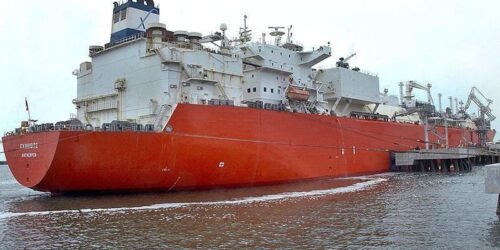The petroleum division on Wednesday blamed the power sector for most of the challenges faced by the liquefied natural gas (LNG) supply chain and said the Frontier Works Organisation (FWO) had given monopoly through 10 fuel stations on the motorway to troubled Hascol as subsidiary.
Testifying before the Senate Standing Committee on Petroleum and Natural Resources, Petroleum Secretary Dr Arshad Mahmood said there was a dry-out situation on M-2 (Lahore-Islamabad Motorway) on the eve of Eidul Azha and the petroleum division had been trying to ensure that these remained wet. He said there were 10 fuel stations on the motorway – five each on either side – that the FWO had given to Hascol as kind of a subsidiary.
Presided over by Abdul Qadir, who as an independent candidate had defeated a PTI nominee to become a senator from Balochistan, then joined the Pakistan Tehreek-i-Insaf and became chairman of Senate committee, said the petroleum division was not taking timely decisions. He said the government should take timely decisions on LNG imports to protect consumers from unnecessary burden. He said the government should facilitate the private sector instead of monopolising the LNG business.
The petroleum secretary said he had personally taken up the mater with the FWO management to have a strategy so that these fuel stations remain well served. He said it would be inappropriate to disclose details, but two major parties were in line for acquisition of Hascol at current depressed share price.
One of the two parties was really sound and interested in taking over major shareholding after financial restructuring of the second largest private oil marketing company by market share. The company has 611 fuel stations across the country, besides other major strategic installations.
A senator pointed out that it appeared to be a well-planned move by the main shareholders of Hascol, accusing them of playing with fraudulent purchase orders. He cited recent disclosures by the Securities and Exchange Commission of Pakistan that the company kept on restating its financial results.
He pointed out that even the new major shareholders — Vitol — with 40pc stake was planning to have a major initial public offering in the United Kingdom and wanted to dump Hascol and run away because it did not want its bad liabilities on Vitol balance sheet. The senators advised that they should not be allowed to escape, instead operations should normalise and share price improve so that local shareholders could at least have some recovery for the share whose value had crashed from Rs380 to just Rs8 in a short period.
In reply to a question, Chairman of the Oil and Gas Regulatory Authority, Masroor Khan, said the Ogra’s concern was that shareholders’ interest remains protected, but more importantly the consumers should not suffer because of any dry-out situation. He said the regulator had engaged with the company to fulfill its licence responsibilities to not only keep its 611 fuel stations wet but also to ensure 20 days of product coverage.
The senators expressed concern over mismanagement of LNG imports, particularly those from the spot market, resulting in a burden on consumers of not only electricity but also the consumers of CNG as it had become more expensive than petrol.
Petroleum Secretary Dr Arshad Mahmood told the committee that the government could still have about 250 mmcfd of additional LNG processing capacity from existing terminal operators, but because of the fear of investigations, the executives of gas companies were reluctant to take contract additional capacity.
He informed the committee the petroleum division was also engaged with various institutions and would seek parliamentary support to address the challenge of ‘bureaucratic hesitation’ by raising the bar to higher forums, like cabinet bodies, for approval processes. He said there was nothing illegal in benefiting from additional capacity and that too when it has to bring down processing tariff, but one should be appreciative of those who may have spent time in jails earlier in similar situations.
He told the committee that while petroleum sector companies — PSO, PLL, SSGCL and SNGPL — were bound by international commercial contracts in LNG imports, their customers — the power sector companies — had not only payment problems but were also not ready to sign similar contracts with gas suppliers.
In the same vein, a senior executive of SNGPL, Jawad Naseem, told the committee that the power division or its entities changed their LNG requirements seven to eight times a year after approval of annual delivery plans prepared on the basis of the power division’s demand.
These changes, he said, had taken place invariably over the past three years on both sides i.e. power division refused to take LNG arranged on its orders or demanded up to 30pc higher intake instead of its earlier demand. While the power sector refused to take responsibility or foot the bill for variation, the SNGPL had to make diversions back and forth to other subsidised consumers or pay penalties
But that was not all, he explained, adding that various government committees or the cabinet take decisions to provide gas to the fertiliser sector on a 10-15 day notice, or on hourly notice to the power sector, because the government could not afford loadshedding in the domestic sector in case of a sudden drop in river flows.
The secretary told the committee that petroleum companies did not have the financial muscle to have spot LNG purchases 5-6 months in advance. He said the government was looking into building underground storage capacity near Badin for LNG to avoid short-term supply and price fluctuations. The project would cost about $1.5bn.







